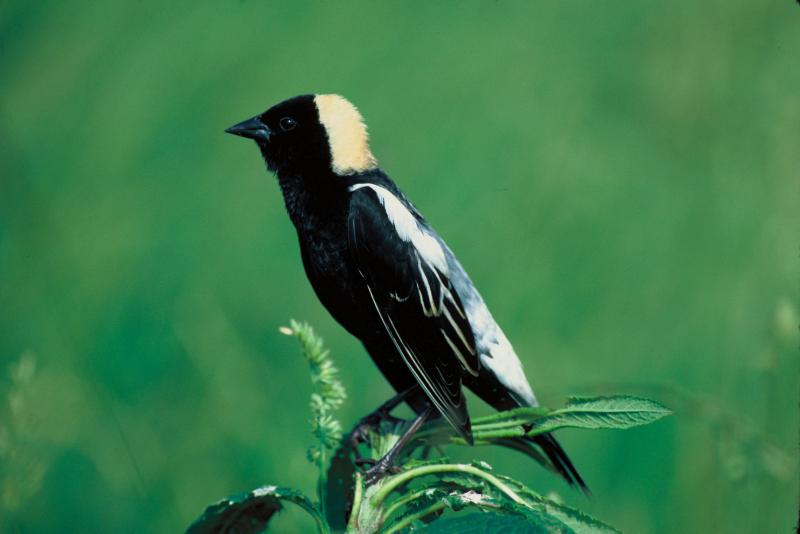With its black and white plumage and yellow nape, the male bobolink is a handsome bird easily identified from a distance. Celebrated for their bubbling song, punctuated with sharp metallic notes, bobolinks are summertime residents of tall grass, mixed prairie, hay fields and meadows across the northern United States and southern Canada.
To learn about grassland birds such as the bobolink and take a walk through a beautiful bobolink habitat that is now being managed for nesting grassland birds, join Damariscotta River Association (DRA), the Agricultural Allies program and Avian Haven for a free Nesting Grassland Bird Walk on June 15 from 9 a.m to 11 a.m.
Bobolinks are remarkable migrants, arriving here to breed each spring all the way from their winter homes in Argentina, Bolivia, and Paraguay. They travel about 12,500 miles round-trip every year, in one of the longest migrations of any songbird. In fact, throughout its lifetime, a single Bobolink may travel the equivalent of 4 or 5 times around the circumference of the earth.
Loss of grassland habitat is a major factor in the steep population decline of grassland birds throughout the northeast such as bobolinks, eastern meadowlarks, and savanna sparrows. Additionally, today’s standard field mowing practices often result in total nest failure of these birds. Consequently, the State of the Birds Report, released by the U.S. Secretary of the Interior, placed bobolinks on the 2014 Watchlist of birds most in need of conservation help.
Conservation mowing practices preserve nesting sites and reduce grassland bird mortality. Laura Suomi-Lecker, Project Manager of the grassland bird Agricultural Allies program for Somerset County Soil and Water Conservation District, as well as education and outreach coordinator for Avian Haven Wild Bird Rehabilitation Center in Freedom, will discuss the needs and issues facing grassland birds and best management practices to help them, whether you live on a suburban lot, or have acres out in the country, or manage a farm.
DRA Lands and Stewardship Director Jesse Ferreira will also talk briefly about DRA’s new habitat management practices.
To register, call 207-563-1393 or email dra@damariscottariver.org. There is no cost for this event.
For more information about the camps or other programs and events call 207-563-1393, email dra@damariscottariver.org, or visit www.damariscottariver.org.





























